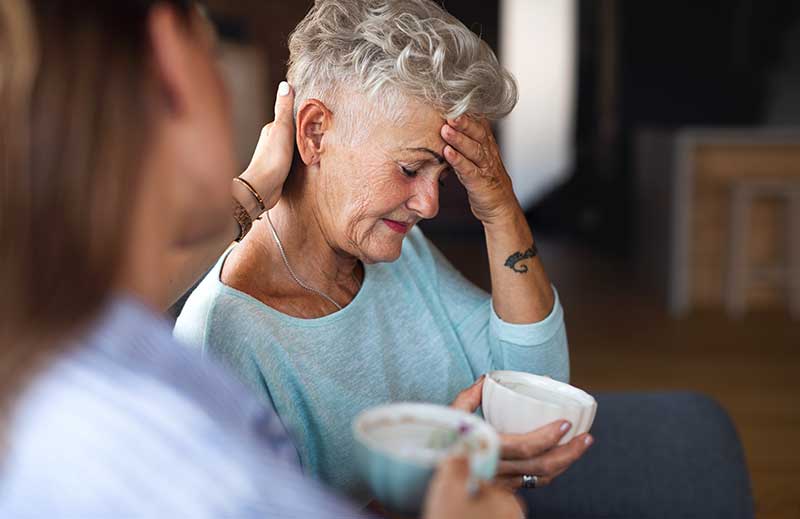Depression is a prevalent mental health issue among the elderly that frequently goes undiagnosed and untreated. It can have a substantial effect on their health and quality of life. As caregivers, family members, or acquaintances, it is crucial to recognize the signs of depression in seniors and provide the necessary support. In this blog, we will examine the various facets of assisting seniors with depression and provide practical advice to help them through this difficult time.
Recognizing the Signs of Senior Depression
Understanding the Symptoms of Senior Depression Understanding the signs and symptoms of senior depression is the first step in assisting seniors with depression. We discuss the common symptoms of depression, including persistent melancholy, loss of interest in activities, changes in appetite or sleep patterns, irritability, and feelings of hopelessness. By being aware of these indicators, we are able to recognize when a senior may be experiencing depression and take the necessary measures.
Encouraging Open Communication
Creating a secure and nonjudgmental space for seniors to express their emotions is essential for promoting open communication. We examine the significance of open communication and attentive hearing when supporting depressed seniors. We provide advice on how to initiate conversations, ask open-ended inquiries, and demonstrate empathy. Effective communication can assist the elderly in feeling understood, validated, and more at ease when seeking assistance.
Seeking Professional Help
While providing emotional support is crucial, it is important to remember that treating depression frequently necessitates professional intervention. We discuss the advantages of obtaining assistance from healthcare professionals who specialize in geriatric mental health, such as psychiatrists, therapists, and counselors. We offer assistance in locating appropriate healthcare providers and a variety of treatment options, including psychotherapy, medication, and support groups.
Encouragement of Healthy Lifestyle Choices
Engaging in healthy lifestyle practices can have a substantial impact on the mental health of seniors. We emphasize the importance of regular physical activity, a balanced diet, and adequate sleep in the treatment of depression. In addition, we discuss the advantages of encouraging seniors to engage in social activities, interests, and the maintenance of social relationships. Modifications to one’s lifestyle can significantly improve one’s demeanor and outlook.
Providing Emotional Support
Seniors suffering from depression frequently require emotional support and reassurance. We discuss practical methods to offer emotional support, such as spending quality time with them, engaging in meaningful conversations, and encouraging healthy coping mechanisms, such as journaling or engaging in creative activities. Throughout the process, we also emphasize the importance of patience and understanding.
Reducing Social Isolation
Social isolation is a prevalent risk factor for depression in the elderly. We investigate strategies to help seniors combat social isolation, such as promoting participation in community programs, establishing connections with support groups, and utilizing technology for virtual social interactions. Developing a solid support system can play a crucial role in reducing depressive symptoms.
Conclusion
Supporting depressed seniors requires a multifaceted approach that includes recognizing the symptoms, encouraging open communication, pursuing professional assistance, promoting healthy lifestyle choices, providing emotional support, and reducing social isolation. By implementing these strategies, we can have a positive effect on the mental health of senior citizens, thereby enabling them to live happier, healthier lives. Remember that every effort matters, and even modest acts of kindness can make a significant difference in their road to recovery.







